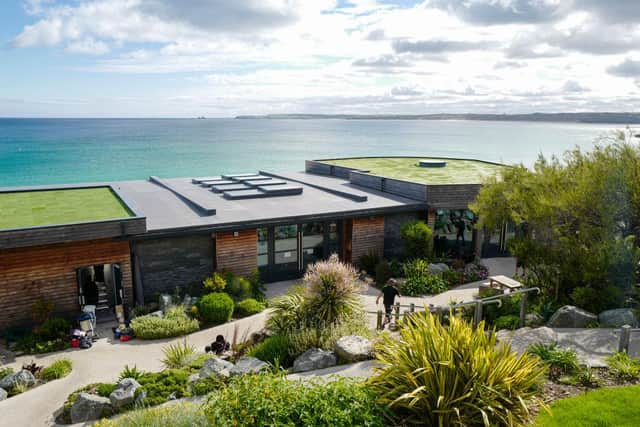Homeless people removed from hotels during G7 ‘slept in tents’ - while 1 in 16 Cornwall properties lay empty
This article contains affiliate links. We may earn a small commission on items purchased through this article, but that does not affect our editorial judgement.
and live on Freeview channel 276
“At least six” homeless people slept in tents after being removed from hotels during the G7 summit, a Cornwall homelessness charity has claimed.
Cornwall Council confirmed that 130 homeless people were moved from Cornwall hotels to make way for paying guests in early June.
Advertisement
Hide AdAdvertisement
Hide AdMonique Collins, manager of homelessness charity DISC Newquay, says that these removals led to “at least six” people sleeping in tents handed out by the charity, while others slept in cars.


We want to hear from you: let us know what you think about this story and be part of the debate in our comments section below
Some people were placed in unsuitable accommodation, claimed Monique, with one vulnerable person housed in a noisy surf hostel which was “completely inappropriate” for his mental health needs.
Cornwall Council said they “continue to support those affected” by the removal from hotels, offering “alternative accommodation when a current placement has to end due to booking availability.”
Advertisement
Hide AdAdvertisement
Hide Ad“Some have chosen to make their own arrangements and others have not wanted to take up the offer of the available alternative accommodation,” they added.
“They want to stay in Cornwall”
Some of the offers of alternative accommodation, claims Monique, were “as far away as Plymouth.”
“Some of them were told they had to go to Plymouth, and many of them didn’t want to because they’re Cornish, they were born here and they want to stay here,” she said.
Having been moved around a week before the G7 leaders’ summit, Monique claims that the removal of homeless people from hotels was a result of block-bookings for G7 guests and police officers.
Advertisement
Hide AdAdvertisement
Hide Ad“Hotel rooms are now [after the G7] becoming available again for allocation… the council knew this was coming and they didn’t take action,” she said.
Cornwall Council, however, says that the removal of homeless people was not related to the G7 but was down to “seasonal pressures.”
“The lack of availability of temporary accommodation in local hotels is a seasonal issue which has been exacerbated by the exceptional number of people we are supporting due to the pandemic,” a spokesperson said.
One in 16 homes vacant
As of October 2020, there were a total of 7,093 empty homes in Cornwall, according to the Council Tax Base.
Advertisement
Hide AdAdvertisement
Hide AdOn top of this, there were 13,642 dwellings registered as second homes, which usually lie empty for part of the year.
Taken together, there are 16,713 empty and second homes in Cornwall, representing one out of every 16 dwellings in the region.
Monique says that Covid has worsened an already-dire housing situation in Cornwall, with a lack of “housing that is affordable for local people,” both to buy and to rent.
“Since Covid, I’ve had families coming in and saying they’ve got nothing left after paying rent,” she says.
“We need housing”
Advertisement
Hide AdAdvertisement
Hide AdThe G7 leaders summit had been billed as a significant opportunity for improvement in Cornwall, but Monique says she is yet to see the material benefits.
“I’d like to know where the benefits are being reaped...you’ve got Boris saying they’re going to bring electric scooters to Cornwall. We don’t need eclectic scooters, we need housing,” she said.
Cornwall Council said that addressing housing issues is a top priority for the administration.
“The number one priority of the new administration is to address issues around the provision of temporary and emergency accommodation,” a spokesperson said.
Advertisement
Hide AdAdvertisement
Hide Ad“We are going to implement a range of new, and speed up existing, solutions that will tackle this issue head on and we’ll be announcing news about these initiatives very shortly.”
“With regard to the number of empty properties, our unofficial interim figures indicate a reducing trend and we anticipate reporting a reduction when the next official return is submitted in October 2021,” they added.
A message from the editor:
Thank you for reading. NationalWorld is a new national news brand, produced by a team of journalists, editors, video producers and designers who live and work across the UK. Find out more about who’s who in the team, and our editorial values. We want to start a community among our readers, so please follow us on Facebook, Twitter and Instagram, and keep the conversation going.
Comment Guidelines
National World encourages reader discussion on our stories. User feedback, insights and back-and-forth exchanges add a rich layer of context to reporting. Please review our Community Guidelines before commenting.
